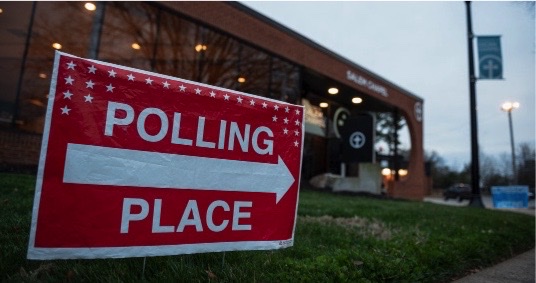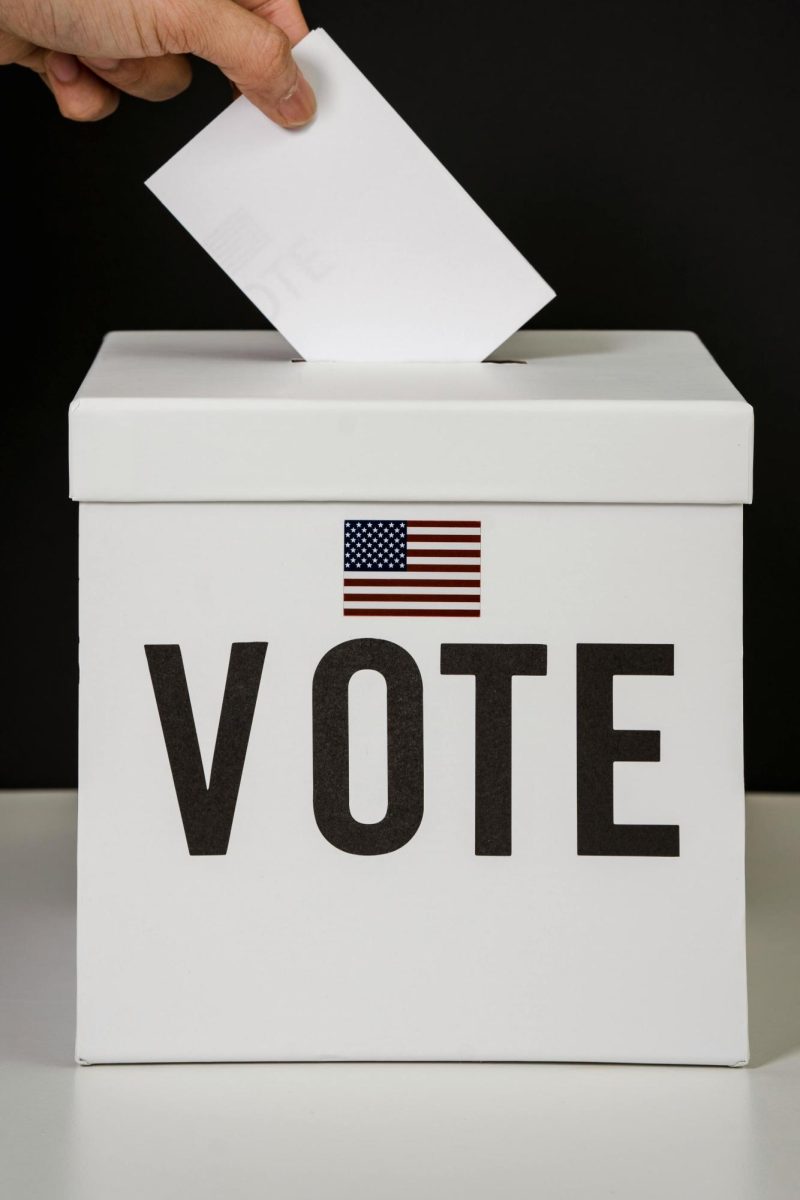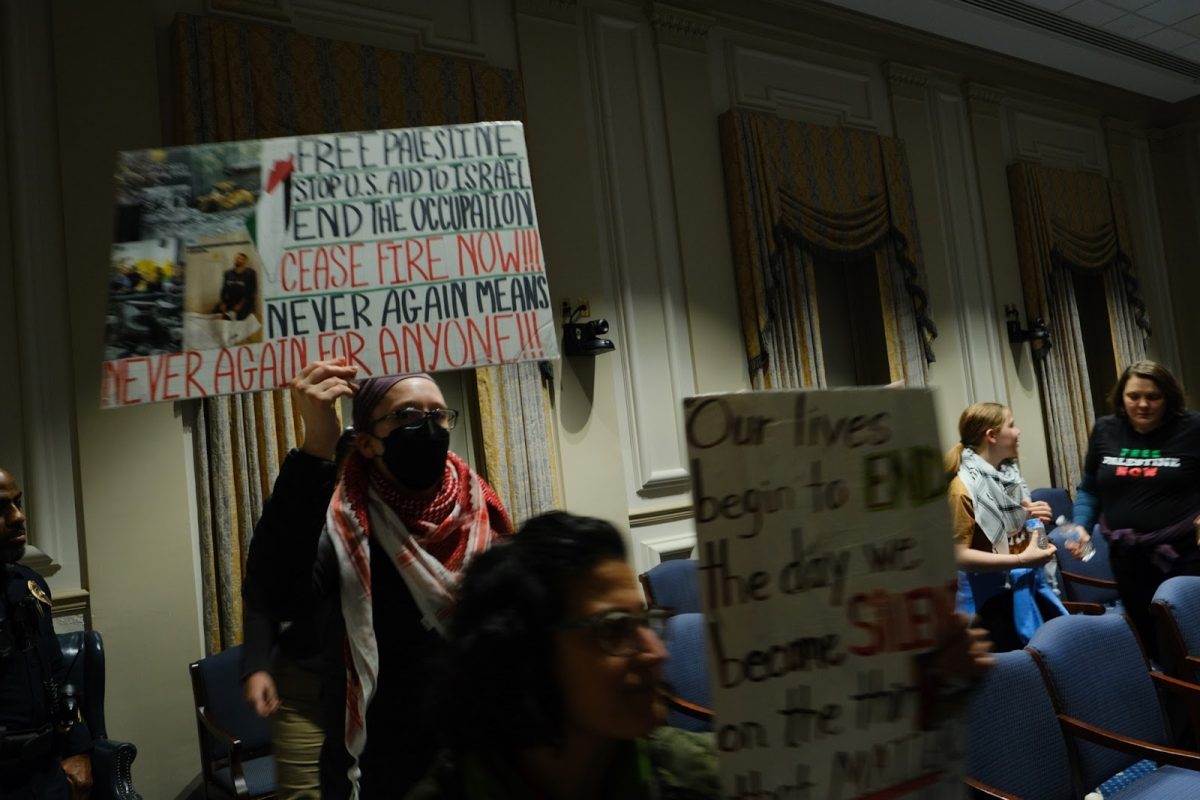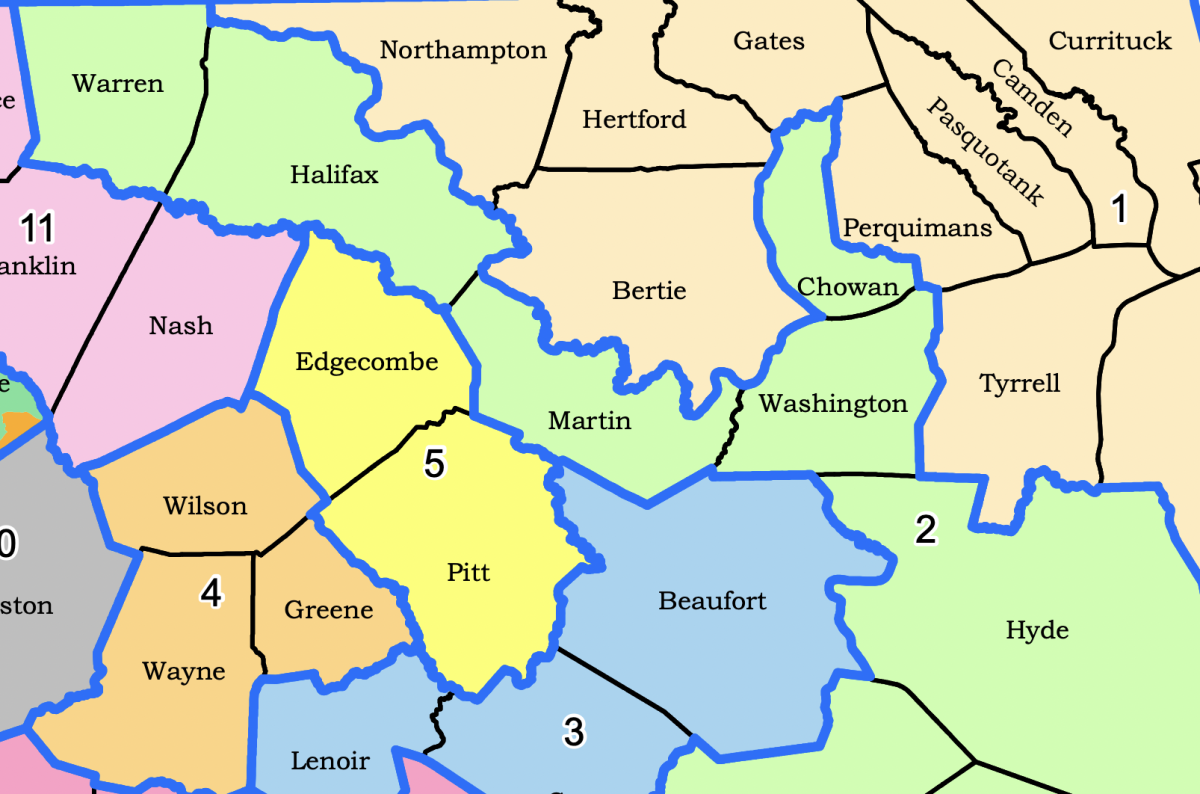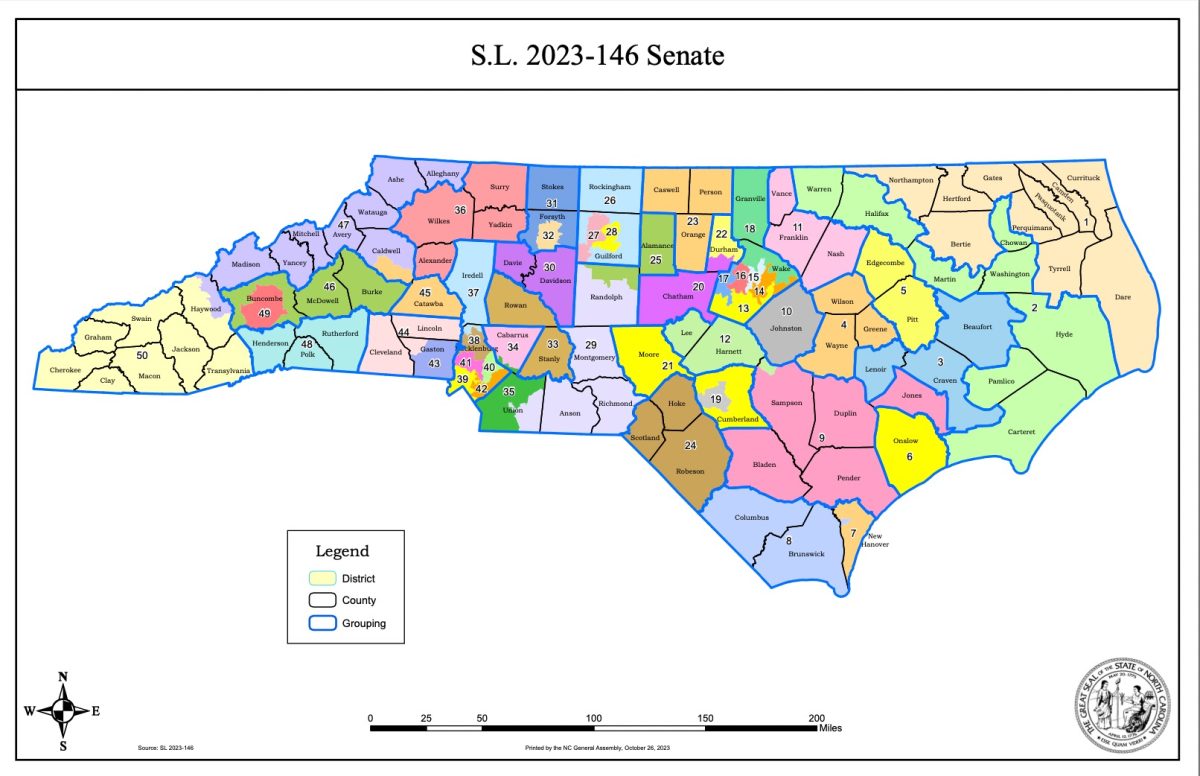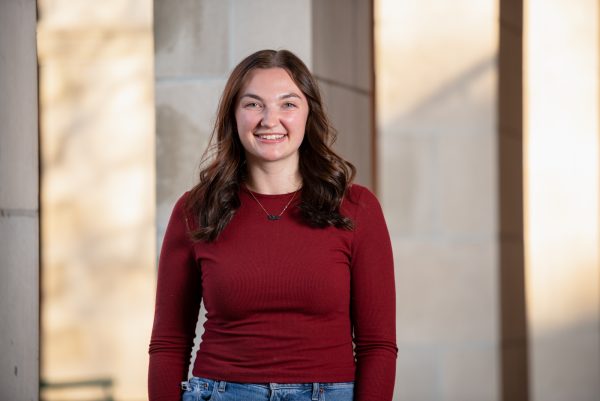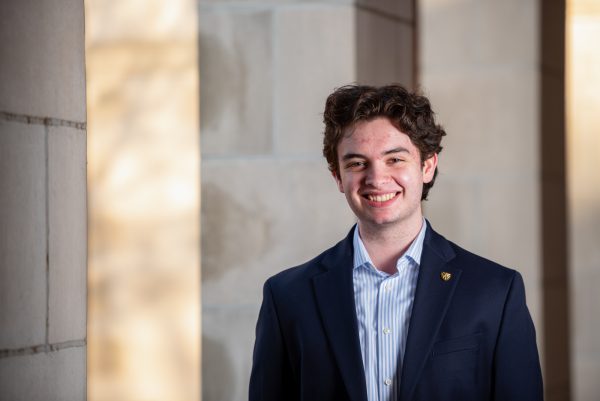Editor’s Note: The following primary election results are accurate as of March 6, according to the North Carolina Board of Elections.
Alongside 14 other states and one territory, the North Carolina primary elections occurred on March 5, also known as Super Tuesday. Polls closed and the first results were released at 7:30 p.m.
Wake Forest students who chose to register with their campus address voted at two polling locations in Forsyth County. Students registered with a South Campus address voted at Salem Chapel, and North Campus residents went to Bethabara Moravian Church to cast their votes.
“I’m a big believer in voting,” freshman Alex Crystal said. “I think it’s good to have a say in who represents you and what is going on.”
Seven of the 18 voters the Old Gold & Black spoke to at polling sites where Wake Forest students voted highlighted that they felt it was a part of their civic duty to vote and an important function of democracy.
To Crystal, a variety of issues are important in the 2024 election at both the state and national levels.
“[For] national [issues], I would say the economy is pretty big, along with immigration and foreign affairs,” Crystal said. “At a state level, I would say taxes, the budget and general public safety, so it kind of depends on the kind of person you’re voting for.”
North Carolina’s primaries are open to unaffiliated voters, allowing individuals registered to vote but not with a specific party to choose to vote in the party primary of their choice. However, unlike an open primary, voters registered with a party cannot vote in another party’s primary. Registered Democrat and Wake Forest sophomore Ollie Breese said that she voted in the party’s primary because of the party’s stance on abortion access.
“That’s the big, pressing issue on my mind for sure,” Breese said.
Forsyth County resident Patricia Brown explained that for her, the coming general election had serious implications for the well-being of American democracy.
“This year is going to be a vote for democracy or autocracy,” Brown said.
Here are the results for the 2024 North Carolina primary elections, according to the North Carolina State Board of Elections.
President
Joe Biden won the Democratic party primary for North Carolina with 83% of the vote. Biden will win all 76 of the state’s delegates.
While there were no other Democrats on the ballot, 13% of Democratic voters opted to circle “no preference” — some of which were in a protest vote over the Biden administration’s handling of the Israel-Hamas war.
Meanwhile, former president Donald Trump also swept the state’s Republican primary with 66%. Challenger Nikki Haley scored 29%, not winning a single county out of the state’s 100. Unable to mount a significant challenge to the presumptive nominee in the “Tar Heel State,” Haley dropped out of the race Wednesday morning.
Governor
North Carolina Attorney General Josh Stein won 65% of the vote to become the Democratic nominee for NC Governor Tuesday night, as his current boss Roy Cooper’s second and final term comes to an end.
Current Lt. Gov. Mark Robinson coasted into the Republican nomination with 49%, beating out State Treasurer Dale Fowell.
Stein and Robinson have now become the faces of one of the nation’s most closely-watched gubernatorial races.
Attorney General
In another closely watched race, Congressman Jeff Jackson won the Democratic primary for attorney general against Durham District Attorney Santana Deberry and Tim Dunn.
Jackson will face off against Republican congressman Dan Bishop this fall.
Lt. Governor
Rachel Hunt is projected to win the Democratic primary for Lt. Governor.
Meanwhile, the Republican race is headed for a runoff — a second election held when no candidate met the percentage of votes needed to win. In North Carolina, a candidate must receive 30% of the votes to win the election. Hal Weatherman is leading with 19% and Jim O’Neill is comfortably in second place with 15% – they will both advance to the runoff.
House of Representatives
Following Democrat Kathy Manning’s announcement that she wouldn’t be seeking re-election last December, North Carolina’s sixth congressional seat turned into a high-profile contest.
No Democrats ran for the seat, as the district became virtually unwinnable for the party following new district maps unveiled late last fall.
The Republican primary drew in high-profile support from former President Donald Trump, with his endorsee, Addison McDowell, ultimately leading on Tuesday night with 26% of the vote.
Because none of the candidates reached 30%, that race is also heading into a runoff election between 2nd place Mark Walker and McDowell in May.
Winston-Salem Mayor and City Council
Winston-Salem City Council yielded Tuesday’s biggest local upset: Local restaurateur Vivian Joiner, owner of Sweet Potatoes, won the Democratic primary for Winston’s South Ward, unseating incumbent John Larson.
Incumbent councilmembers Scippio (D) and Adams (D) held onto their seats while Regina Ford Hall clinched the nomination for the Democratic nominee for the northwest ward. Hall will be up against James “Jimmy” Hodson in November who won the Republican primary.
State Legislature
Democrat Amber Baker, who represents State House District 72, won her Democratic primary, setting up a run for her third term in November.
Another incumbent Democrat, Paul Lowe, representing State Senate District 32, won, advancing to the general election.
Secretary of State
Chad Brown is projected to receive the Republican nomination for Secretary of State and face incumbent Elaine Marshall, who was uncontested in the Democratic primary.
Auditor
Incumbent Jessica Holmes advances to the general election in an uncontested race. Meanwhile, the Republican nominee has yet to be announced and is headed for a runoff.
Treasurer
Wesley Harris advances to November’s general election as the Democratic nominee, facing Republican Wesley Harris.
Superintendent of Public Instruction
Statewide, most elections went as expected, but the Superintendent of Public Instruction’s race represented a significant upset — becoming one of the most talked about contests overnight.
Incumbent Catherine Truitt lost the Republican primary to Michelle Morrow. Morrow is a mother of five homeschooled kids and she previously ran — and lost — for the Wake County Board of Education. Morrow was also outside the Capitol on Jan. 6, 2021.
Mo Greene comfortably won the Democratic primary with 68% of the vote.
Insurance Commissioner
Democrat Natasha Marcus is projected to receive the Democratic nomination.
In the fall, she will face the incumbent, Republican Mike Causey, who is projected to win the Republican primary for insurance commissioner.
Commissioner of Agriculture
Incumbent Steve Troxler is projected to win the Republican primary for commissioner of agriculture. He will face uncontested Democratic nominee Sara Tabor in November.
Commissioner of Labor
In an uncontested race, Braxton Winston II received the Democratic nomination. The Republican candidate is projected to be Jon Hardister.
Harshil Jani, Taneecia Natarajan and Jessica Barry contributed reporting to this article.


